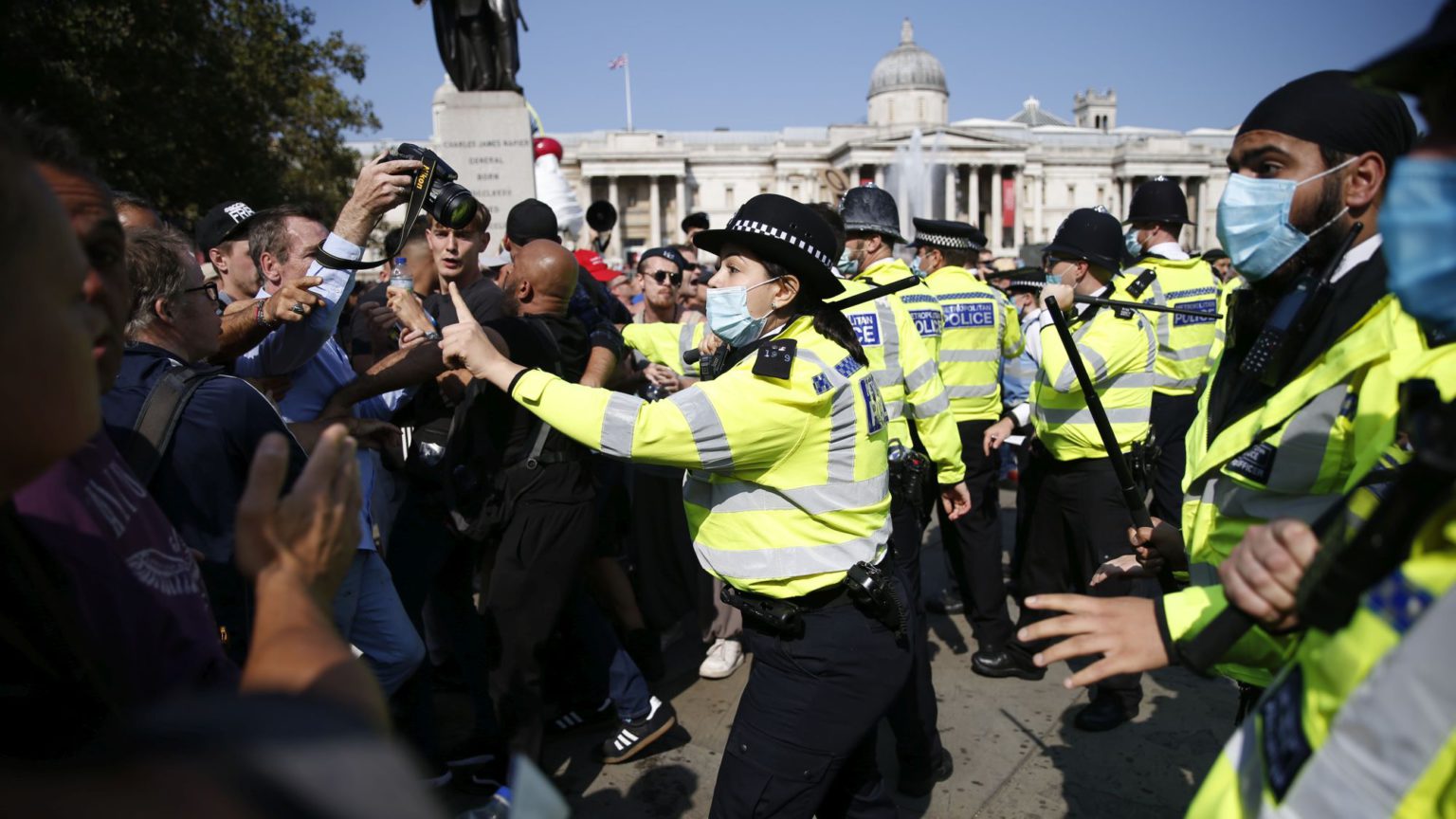UK (Parliament Politic Magazine) – The British police have recently gained new and expanded powers, which now enable them to address the actions of activists who disrupt road traffic and major construction projects through protests. Authorities have consistently condemned environmental groups, including Just Stop Oil and Extinction Rebellion, for their approach to raising awareness about the urgent matter of climate change. These groups have been staging multiple high-profile demonstrations on the busiest highways and roads.
Protests In The UK Have Caused Serious Disruptions
In recent years, their protests have frequently resulted in significant disruptions for motorists. However, starting this Sunday, the police will be granted the authority to forcefully disperse stationary demonstrations.
Detractors contend that these stricter laws pose a threat to the fundamental right to protest. Nevertheless, officials in the United Kingdom asserted that these measures are necessary to curb the “disruption caused by a self-centered minority.”
The general public has reached its limit in tolerating the disruption caused by these self-serving protesters. The chaos witnessed on our streets has been nothing short of scandalous, expressed Suella Braverman, the Home Secretary.
Newly Implemented Law State Strict Penalties For The Protesters
According to authorities, individuals who are found guilty of “tunneling” under the newly implemented Public Order Act may face a prison sentence of up to three years. This refers to the act of digging underground tunnels with the intention of impeding the progress of new infrastructure projects.
Additionally, those who are found guilty of obstructing a significant transportation initiative could potentially be incarcerated for a maximum period of six months. Under the recently enacted Public Order Act, individuals engage in the disruptive practice of tunneling.
For those who are unfamiliar with the term tunneling is the act of clandestinely excavating underground passages to impede the construction of vital infrastructure projects. The offenders may now be subject to a severe penalty of up to three years of imprisonment, as stated by authorities.
Furthermore, anyone found guilty of obstructing a major transportation endeavor could face a potential jail term of six months. The law also criminalizes the act of “locking on,” which refers to protesters attaching themselves to individuals, objects, or buildings.
Hundreds of Protesters Were Arrested By Police
Last year, a significant number of climate change protesters in the UK were apprehended for obstructing major roads and bridges. These dedicated activists resorted to sitting in the middle of the roads or even adhering themselves to the streets, making it exceedingly difficult for authorities to disperse them.
This form of civil disobedience represents a growing trend of direct action, which has extended to activists attaching themselves to renowned museum paintings or even flinging soup at artwork, all in an effort to capture media attention and raise awareness for their cause.
Law enforcement officials have expressed concerns over the substantial costs associated with managing these protests, as well as the diversion of thousands of officers from their regular duties, including crime prevention and investigation.
Read More: Unlocking Potential: Why It’s Time to Allow Asylum Seekers to Work in the UK
British Police With Expanded Powers Will Strict Prevention Measures Against The Protesters
New and expanded powers for the British police came into effect on Sunday, encompassing measures specifically aimed at activists who disrupt traffic and major construction projects through protests.
Environmental protest groups such as Just Stop Oil and Extinction Rebellion have repeatedly faced criticism from authorities for their efforts to raise awareness about the pressing issue of climate change. These groups have organized numerous high-profile protests on the busiest highways and roads, causing significant disruptions for motorists.
As of Sunday, the police will possess the authority to disperse static protests. While critics argue that these strengthened laws pose a threat to the right to protest, U.K. officials assert that these measures are necessary to prevent “disruption from a selfish minority.
By implementing these new powers, the British police aim to strike a balance between allowing peaceful protests and ensuring the smooth functioning of society. It is crucial to address the concerns of activists while also safeguarding the rights and interests of the general public.
The police have expressed concerns about the high costs associated with managing protests, as well as the significant diversion of thousands of officers from their primary duties, such as addressing criminal activities.


